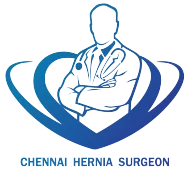Laparoscopy has become a widely used alternative to open surgeries in treating several abdominal and pelvis conditions. It was first introduced in 1990, and since then, it has undergone several technological advancements to facilitate smoother and quicker surgeries.
In this article, we’ll look into some of the major technological advancements and cases where laparoscopy is prominently used. Read till the end to learn more.
Table of Contents
ToggleWhat Are the Recent Notable Advances in Laparoscopic Surgery?
Compared to open surgeries, where the surgeon has to make a big incision on your body and perform the surgery, most people nowadays prefer to undergo laparoscopic surgery. In laparoscopic surgery, three or four small incisions are made, resulting in less surgery time compared to other methods.
As such, laparoscopy has had several advancements that ensure patients have minimal risks and complications during and after the surgery.
Technological Advancements
Robotically Assisted Laparoscopic Surgery
This is the latest technology in laparoscopic surgeries. Before this, surgeons used to hold the surgical instruments and operate on your body manually. But with robotically assisted laparoscopic surgeries, the surgeon will sit near a computer console and control the robotic hands that will operate on you.
This advancement allows for more precision and accuracy during the procedure. It can also reach places in your body that your surgeon can’t manually, allowing for better treatment.
3D and 4K Cameras
When laparoscopy was first introduced, surgeons only had a 2D vision of the organs inside your body. This reduced their accuracy and sometimes caused errors.
Now, however, laparoscopy has 3D and 4K imaging systems that allow for enhanced vision and lower the chances of errors and complications. A study also found that using 3D cameras has reduced the error rate by 62% compared to using 2D cameras.
Fluorescence-guided Laparoscopic Surgery
Fluorescence-guided laparoscopic surgeries are prominently used in the treatment of gastrointestinal cancers. This technology is used to fluorescently label tumor growths or tissues from normal tissues.
This allows surgeons to target those cancer tissues precisely and remove them. This prevents any risks and complications that may arise if you accidentally operate on a normal, healthy tissue.
AR and VR Usage in Laparoscopic Surgery
AR (Augmented Reality) and VR (Virtual Reality) are some of the latest advancements in laparoscopic surgery. Before, the surgeon had to suffer from discomfort, fatigue, and neck pain by constantly looking at the camera that was placed outside their direct field of vision.
With AR and VR imaging, surgeons can have laparoscopic video in their field of vision and perform the surgery with less discomfort and more interruption. This method has also been noted to reduce the overall length of the procedure.
Laparoscopy's Growing Role in Diverse Procedures
Laparoscopy has been growing rapidly in recent years, and more and more surgeons prefer to use this minimally invasive, less complicated procedure to perform their surgeries.
Unless your condition calls for an open surgery, your doctor will mostly recommend a laparoscopy to diagnose and correct your ailment. Below are some procedures where laparoscopy is preferred in recent years.
Bariatric Surgery
Bariatric surgery, also called metabolic surgery, is a popular weight-loss surgery method. It is performed when your diet and exercise cannot help you lose weight or when your weight causes some serious complications.
Most bariatric surgeries are performed laparoscopically, where a laparoscope is used to view your insides and operate on your belly.
Single-port Laparoscopic Surgery
A single-port laparoscopic surgery is a type of laparoscopic surgery where, instead of multiple incisions, a single incision is made to access and operate your internal organs.
This technique is gaining popularity among patients and surgeons alike, as it allows for a minimal recovery period and minimal risks of bleeding, infections, and inflammations after the surgery.
Urological Procedures
Laparoscopy is also predominantly used to diagnose and correct urological issues in both men and women. It is minimally invasive and helps in cases like kidney and bladder cancer removal.
Laparoscopic Oncologic Surgery
The effect of laparoscopy on cancer survival rate has not yet been proven. However, the procedure has other benefits when conducting cancer surgeries. Surgeons noted that laparoscopy allows them to conduct neat, less morbid multivisceral resections.
It also gives them access to multiple locations that can’t be reached through other procedures. It also allows for a decrease in the chances of invasiveness and tissue trauma during the procedure.
Conclusion
Technology is advancing rapidly, and there are many advantages you can get from it. Laparoscopy is developing rapidly, and many countries are adopting the technology to treat several health issues.
The surgeon you choose for your laparoscopy also plays a part in its success. So, do thorough research and visit the best laparoscopic surgeon who can help you treat your problem without many complications.
Dr. K. Amilthan MBBS., MS., FMAS., FALS.
Heal Your Hernia Now:
- 15+ Years of Experience
- 3,000+ Surgeries
Your Journey to Wellness Begins with us.
FAQ's
This is the latest technology in laparoscopic surgeries. Before this, surgeons used to hold the surgical instruments and operate on your body manually. But with robotically assisted laparoscopic surgeries, the surgeon will sit near a computer console and control the robotic hands that will operate on you.
A single-port laparoscopic surgery is a type of laparoscopic surgery where, instead of multiple incisions, a single incision is made to access and operate your internal organs.
Your bowels are more prone to injury than any other organ during laparoscopic surgery. This condition is more common in laparoscopic surgery than in open surgeries.

Dr. Amilthan
Dr. Amilthan is a renowned laparoscopic hernia surgeon based in Chennai, with over 15+ years of experience in general surgery. He completed his MBBS and MS in General Surgery at Kilpauk Medical College and Government Royapettah Hospital in Chennai.
- All Posts
- Hernia Blog

Which Doctor should you consult for Hernia? You can Consult a general surgeon or a hernia specialist for evaluation and...

A hernia occurs when an organ or any other part of your body pushes through the muscle and surrounding tissue...

An inguinal hernia occurs when the organs push through and bulge against the weak muscles of the abdomen. An effective...

